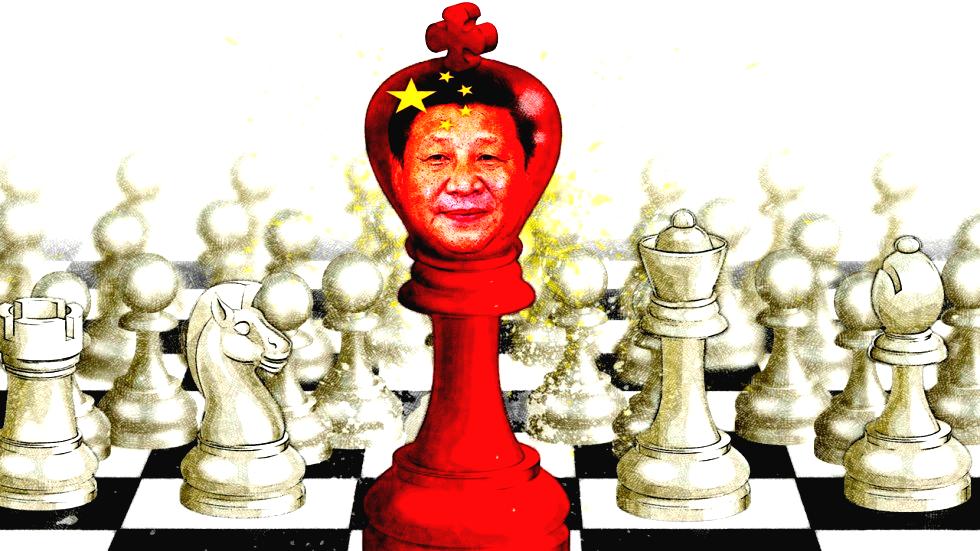Two interesting stories emerged from China on Sunday. One, which was largely ignored, was about how the country had overtaken the United States in startup funding for artificial intelligence. The other, which generated considerable buzz internationally, was about how the Communist Party was all set to abolish the two-term cap on the country’s presidency. This would pave the way for Xi Jinping to continue as the country’s leader indefinitely.
What is interesting about both stories emerging on the same day is that they represent two distinct tendencies that have emerged out of China of late. On one hand, we have witnessed the country’s meteoric rise in every field, as it marches on its quest to becoming the world’s primary superpower in the coming decades. On the other, we have witnessed a calculated power grab, a smooth and steady attempt at converting one of the world’s biggest success stories into a one-man show.
How do both the tendencies in question reconcile with each other? Is there any middle ground, any possibility of them going hand in hand? Unlikely. Many believe that after Sunday’s maneuver, Xi Jinping has positioned himself to become the most powerful man in the world. As he goes about trampling the very systems and ideas that made him and China what they are today, his moves are likely to have an adverse effect on China’s dream run towards fulfilling its supposed ‘manifest destiny’.
China’s recent rise is neither a happy coincidence nor a product of sudden enthusiasm amongst its people. It’s a carefully crafted process being carried out stage by stage. With a deep civilizational basis that considers the Middle Kingdom to be the superior and rightful rulers of the entire world, and a strategy that looks many decades into the future to achieve exactly that, the Chinese have consistently moved towards their goal one milestone at a time. From becoming the factory of the world to uplifting the lives of millions overnight back home, to flexing their military muscles and peddling their soft power, nothing has stopped the Chinese. In an era of economic colonization, they have grabbed whatever was up for grabs, entire continents even.
Xi Jinping sees himself as an important part of this journey, and no doubt he is. Is he as important as Mao Zedong and Deng Xiaoping to have placed himself on such a pedestal when China is still decades away from achieving its goal? Is he important enough not to name a successor for himself, as if the entire China story starts and ends with him? Is he important enough to change the rules regarding presidency, to continue indefinitely, to hold the belief that only with him at the wheel will China achieve its manifest destiny? Of course not! And therein lies the megalomania, the raw ambition and the sense of sanctimony.
The truth of the matter is that one should have seen this coming. In a faction-ridden communist party, he took on his detractors and conducted the gutsiest cleanup acts of recent times. He didn’t seem concerned about the enemies he would make in the process and what the repercussions would be when his time was over. Not to be concerned about the future and to go all out against certain people can mean only one of two things- either you are a Yogi with faith in a higher power, or the latent dictator in you is gradually coming to the fore. Atheism being a cornerstone of the ideology Xi Jinping subscribes to, one can imagine which of the two it was.
As the China story is gradually overshadowed by the Xi Jinping story in the coming years, it’s interesting to examine what this will mean for China.
The country now seems to head the Russia way. Whatever Russia does in the world today, there is no Russia story. It’s by Putin, of Putin, and for Putin. Russia equals Putin. Until Putin is at the helm of affairs, Russia is in good hands. Secure, strong and perpetually on the rise, that’s Putin’s Russia for you. Take Putin out of the equation and the country’s fate hangs in the balance.
Unfortunately for China, Xi Jinping is putting the country at a similar risk. Systems which have held the state together are being bypassed or broken down. Factionalism which was rampant at the highest echelons of the Communist Party, is being countered. Xi is placing himself on a pedestal. Not only the country but the party too will now be one of yes-men. Procedure will go down the drain, only one man will have the final word on every matter. Perhaps it is the right man, but after destroying the system and setting such precedents, what happens when he’s out of the equation?
History has countless examples of how countries, states, organizations and political parties stood destroyed when the strongman holding everything together was either ousted or passed away. Almost every dictator that the Americans killed or ousted in the middle-east recently, had ruled for several decades. With them gone, entire countries have been left rudderless and in complete chaos. One doesn’t even have to look so far. The political vacuum and the ensuing chaos in Tamil Nadu after Jayalalithaa’s demise, or how erstwhile Andhra Pradesh stands bifurcated and the Congress Party’s presence is negligible in the region after YSR’s demise, are some of the recent examples back home.
When one individual’s prerogative becomes the sole deciding factor affecting the lives of millions, when one individual becomes dominant to the extent where it is impossible for a successor to groom himself and take charge when he has to, the aftermath can be unpleasant. The Xi Jinping story will affect the China story, and time will tell how. King Louis XV of France once said, “Après moi, le déluge.” This simple sentence, which means that the country will descend into a deluge after his reign, comes to mind while observing Xi’s machinations.
